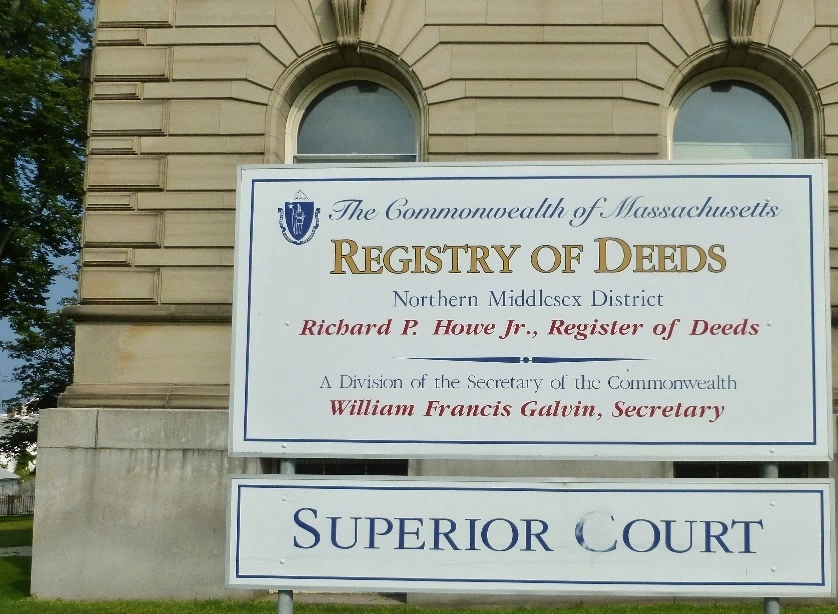
Whether you’re about to receive the deed to your first home, or could use a refresher on all things deed-related, we’ve got you covered.
A deed is a legal document (also called a legal instrument) that serves to transfer a real estate title from a current owner to a new owner. That is, the deed is not the title itself. Rather, it represents the latest transfer in the chain of title. In other words, it’s the physical document that shows who transferred legal ownership rights to whom, and when.
When buying a home from someone you don’t otherwise know, a warranty deed could be the instrument of choice. In other cases, homeownership is transferred among related parties. They would typically (but not always) choose a quitclaim deed for bringing an additional owner on or off the home.
And the Deed Says…

A deed conveys (transfers) ownership of an identified piece of real estate from a grantor (the person who transfers the home) to a grantee (recipient). A completed deed form should be signed, notarized, and filed with the county recorder of deeds. State law dictates what a deed must say. But as a general matter:
- The deed must be in writing.
- The grantor and grantee are identified on the deed. The grantee’s complete signature appears.
- The grantor signed it before a notary.
- The deed being created includes a legal description that perfectly matches the description on the current deed.
- The granting clause transfers ownership to the grantee.
- The consideration clause says the grantor received value for the property, with the purchase price specified.
- The deed must be delivered to its grantee.
- The grantee must accept the deed transfer.
Those are the basics for a binding deed. If you’re wondering why someone might refuse a deed, it’s often because the home would be more trouble than it’s worth to the intended recipient. The intended recipient might not have the personal time and resources to deal with a large asset. Or the home might have liabilities that would be risky or costly to accept.
When you buy (or acquire a property interest in) a home, you get a deed. Need to find it? Here’s how to get a copy of your deed.
Speaking of Risks…
Various types of real estate deeds offer more protection and less risk to a particular party:
- Warranty deeds are common in most states for home sales. They assure the buyer of a free and clear title. This is least risky for the recipient — who can tell that any liens, easements, and restrictions on the title are only those already disclosed by the deed.
- Special warranty deeds place more risk on a recipient. These deeds only assure their recipients that the property wasn’t burdened with claims during the seller’s time as an owner. Liens, easements, and other claims could still exist from the time before that. Homes that go into mortgage default situations are typically sold by banks or other non-occupant owners with special warranty deeds.
- Quitclaim deeds don’t offer any assurances at all. They only transfer the ownership rights that the grantor had — if the grantor actually had any. They may convey the full title, and tend to work efficiently among related parties who have no questions about the home’s legal status. They can also be used to clarify ambiguous ownership status. That is, a person can quitclaim an interest to make it crystal-clear that they hold no claim on the deed.
Deeds allow you to transfer a property title to a buyer, a friend or relative, or an organization. For example, you might decide to downsize but deed the family home to a younger relation (though for tax purposes, many homeowners bequeath their homes through wills instead). Deeds also allow you to quitclaim a home into a trust on behalf of a person or family.
A deed can transfer title in a regular sale. If instead you give your home away, a gift deed shows it was conveyed to its recipient unconditionally, for no money — whether that be to a person or perhaps a charity.
If you bequeath your home, the beneficiary receives an executor’s deed or and administrator’s deed out of the probate court. In some states, you can bypass probate and bequeath your home using a transfer on death deed.
Can anyone transfer or receive a deed? Learn about legal competence and deeds with Deeds.com.
Now, About Condos…
Here are the special considerations for the deed wherever a homeowners’ association or condo association is involved.
The relative affordability of the condo market provides something of an opportunity for hopeful buyers, and for fans of downsizing and minimalism. But what kind of deed does a condo come with? Buyers need to understand how the title works when they opt into a homeowners’ association (HOA).
First, yes: the buyer of a condo unit does get a deed to real estate — a deed which can later be sold. At the same time, the association holds a master deed on behalf of the collective of unit owners. The master deed for a condo development must follow state law. It’s recorded with the county by the property developer, together with the Covenants, Conditions & Restrictions (CC&Rs), maps, etc.
In general, it’s the association that must manage common elements (areas used by the community of unit owners). The unit owner handles everything within the four walls of the condo. Additionally, many properties allow for each unit owner to individually enjoy and tend a patio/garden area.
Look to the condo property’s Covenants, Conditions & Restrictions (CC&Rs) to learn the breakdown of rights and responsibilities for a specific development. Typical restrictions on ownership deal with aesthetics, pet limits, and caps on rentals.
When It’s Time to Deed a Home…
Transferring real estate can be a complicated affair. To keep things as simple as they can be, it’s important to know how the deed works.
Not sure whether you’ll need to update your deed? Questions about deeds, trusts and estate planning? Or any other deed-specific questions? Answer them with legal expertise. Contact an experienced attorney in your state.
A tax pro knows a good deal of pertinent information too. When you buy, sell, or otherwise transfer a deed, you’ll need to be prepared for transfer tax in many cases, and potentially capital gains taxes. You’ll also want to learn about the tax breaks a deed holder can claim on their mortgage interest.
But right now, we want to be sure you have a refresher on deed basics. Thank you for spending some of your valuable time today with Deeds.com.
Supporting References
Mia Taylor for Bankrate.com: Documents Needed to Sell a House (Feb. 29, 2024).
Carla Ayers via RocketHomes.com: The Home Buyer’s Guide To House Deeds (updated Feb. 2, 2024). Rocket Homes℠ is a registered trademark and part of Rocket Homes Real Estate LLC.
Deeds.com: With Home Prices Soaring, Condos Are a Relative Bargain. Here’s How Their Deeds Work (Jun. 23, 2021).
And as linked.
More on topics: Deed theft, Reasons for quitclaiming
Photo credits: Mark Moz via Wikimedia Commons (licensed under CC BY-SA 2.0 Generic), and Emw via Wikimedia Commons (licensed under CC BY-SA 4 .0 Int’l).
